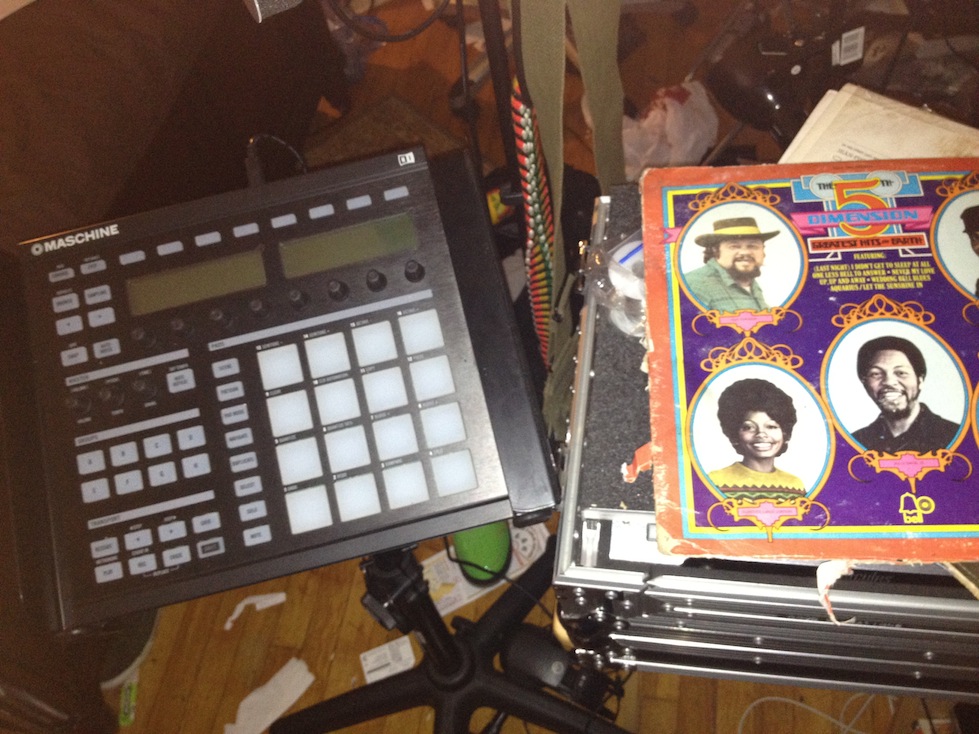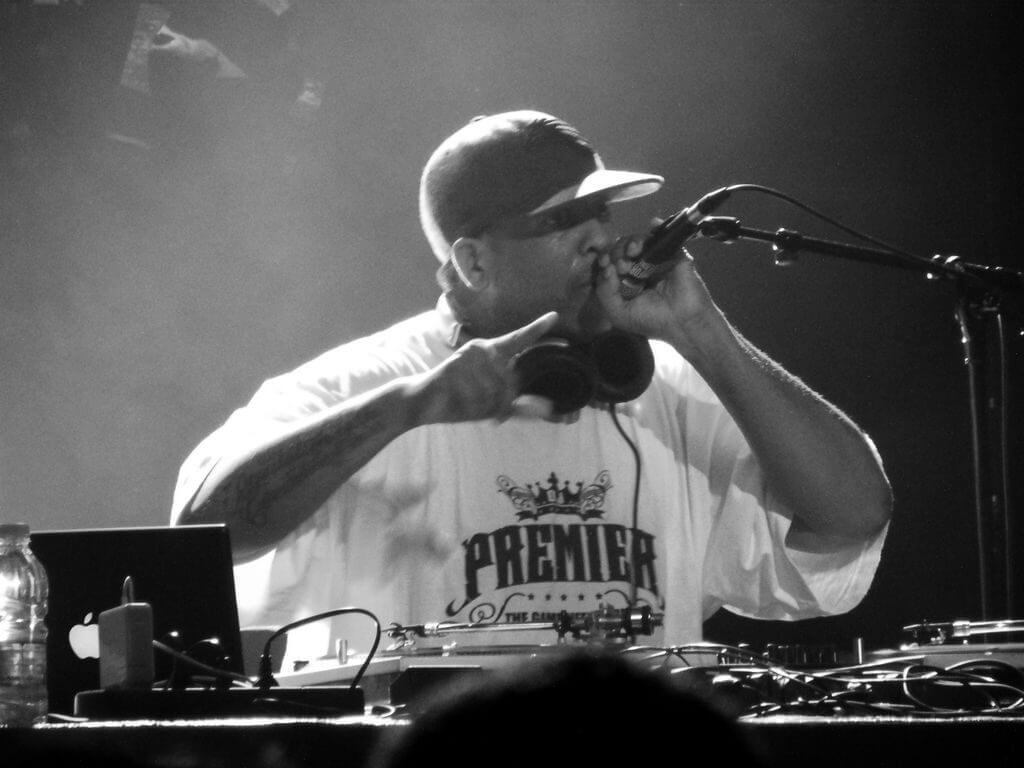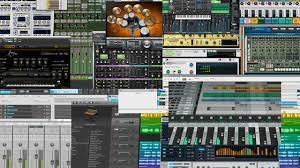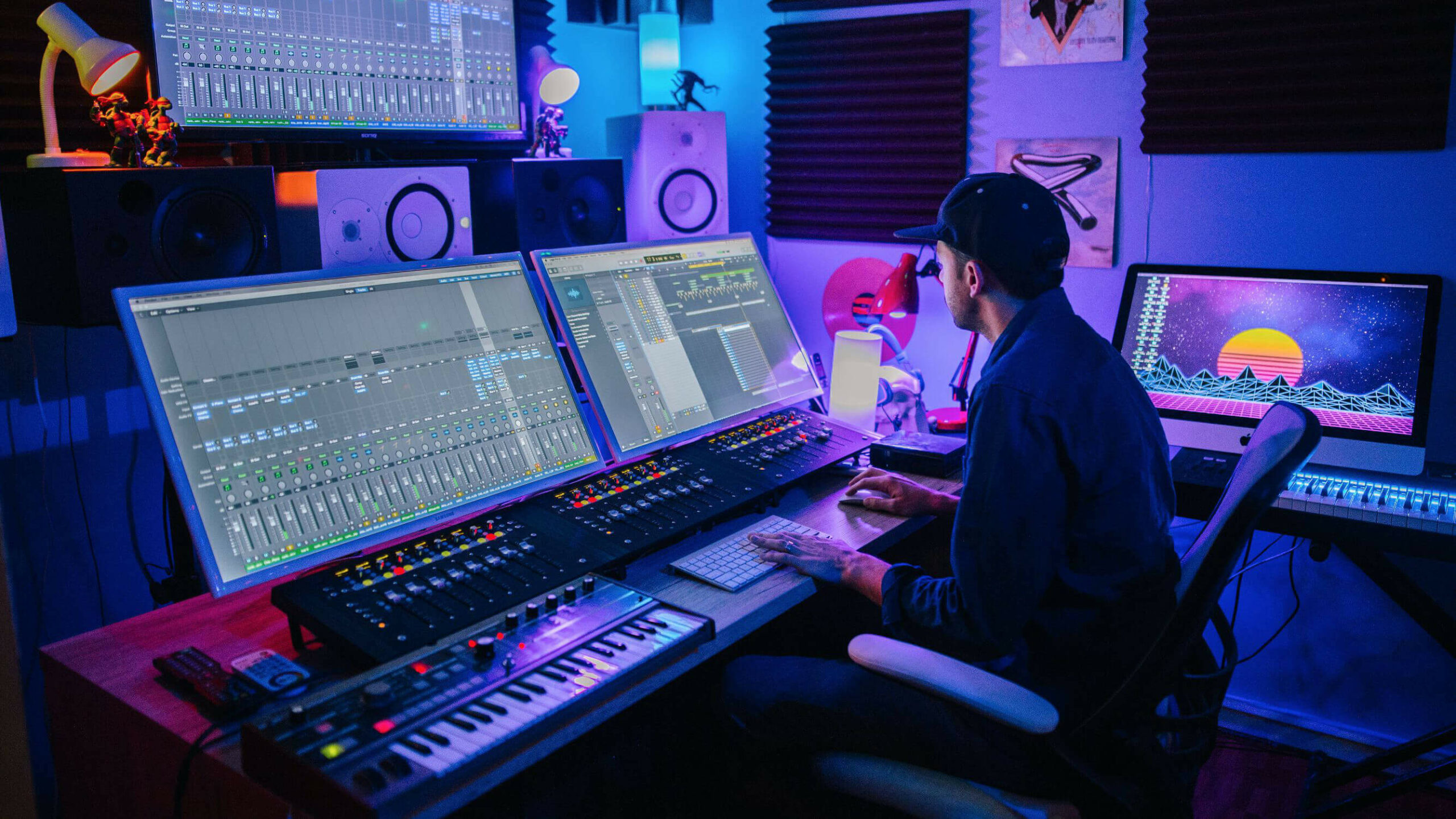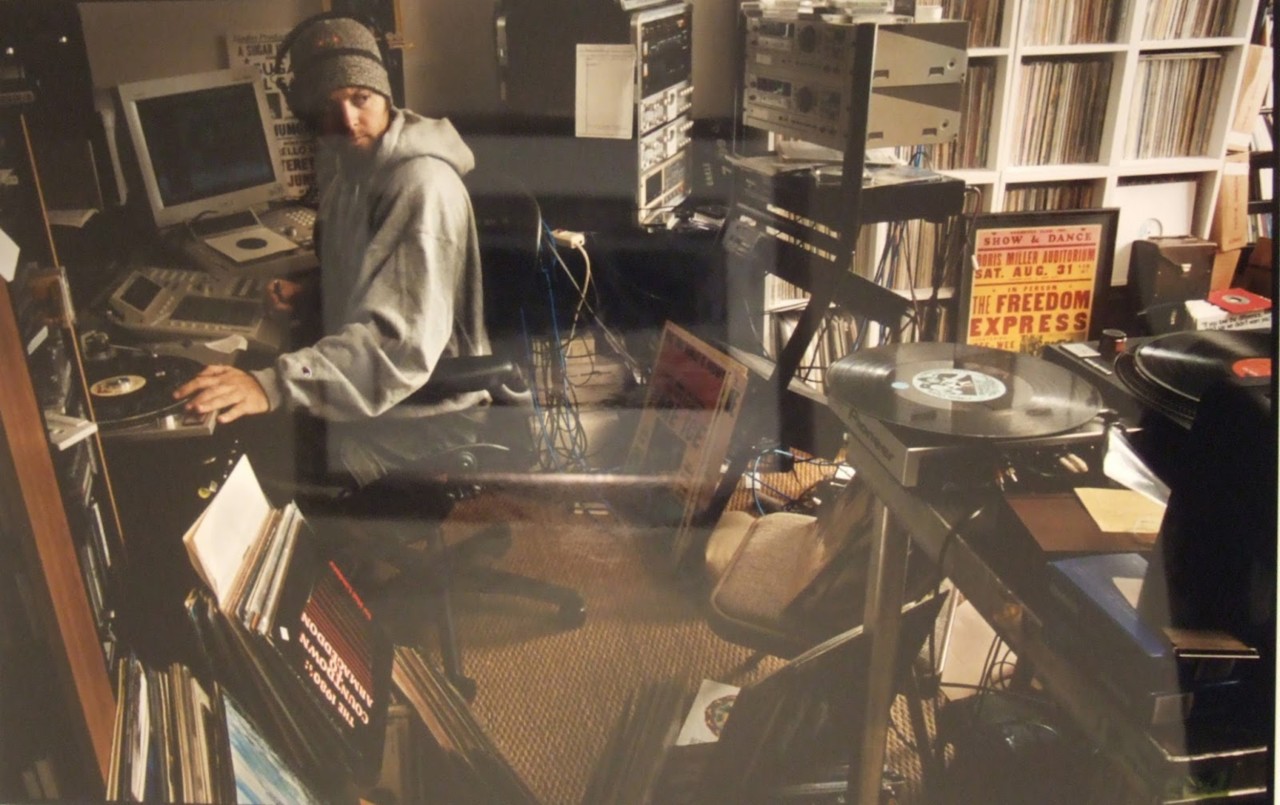Hip-hop music has come a long way since its inception in the Bronx in the 1970s. One of the most distinctive features of this genre is the use of sampling – taking snippets of existing music and incorporating them into fresh beats. This practice has a rich and turbulent history full of technological innovation, legal battles, and artistic evolution. In this article, we’re going to delve into the fascinating world of hip-hop sampling and explore its importance to the genre’s unique sound.
The Origins of Sampling in Hip-Hop
Sampling has its roots in early hip-hop parties, where DJs would use two turntables and a mixer to play and manipulate vinyl records (who doesn’t love a good scratch?). By isolating certain breaks or drum fills, they could create new rhythms and grooves on the fly. This technique eventually evolved into using samplers – electronic devices that could record and replay short audio snippets.
In the 1980s, pioneering hip-hop producers like Marley Marl and Public Enemy‘s Bomb Squad began using samplers to create entire beats out of these snippets, layering different sounds and manipulating them in unique ways. This approach gave rise to some of the most iconic songs in the history of hip-hop, and set the standard for how future producers would use sampling in their music.
The Birth of Hip-Hop and the Role of Sampling
Hip-hop emerged as a cultural movement in the South Bronx in the late 1970s, as marginalized black and Latinx youth sought an outlet for creative expression in the face of economic hardship and systemic injustice. Early hip-hop parties were a space for these young people to come together, showcase their skills, and assert their identities.
Sampling quickly became a key element in hip-hop sound, reflecting the genre’s roots in DJ culture and its spirit of innovation and experimentation. By remixing and recontextualizing existing music, hip-hop producers were able to create something wholly new and fiercely original.
Early Influential Producers and Their Techniques
As sampling became more prevalent in hip-hop, a few standout producers emerged as pioneers of the art form. Producers like DJ Premier, J Dilla, and Pete Rock had a knack for finding obscure and overlooked records, and were able to turn these hidden gems into timeless classics.
One of the most influential techniques these producers used was chopping – taking a sample and cutting it into small pieces, which could then be rearranged to create new patterns and rhythms. Layering multiple samples on top of each other was another popular method, creating rich and complex textures.
The Art of Sampling in Hip-Hop : Techniques and Approaches
Sampling is more than just a technical process – it’s an art form that requires creativity, intuition, and a deep knowledge of music history. In this section, we’ll take a closer look at some of the most important techniques and approaches used by hip-hop producers.
Digging for Samples : The Crate-Digging Culture
One of the most essential parts of sampling is finding the right source material. Many hip-hop producers have built massive collections of vinyl records, combing through thrift stores and obscure online shops in search of the perfect sample.
This process is known as crate-digging, and it’s become a beloved ritual for many beatmakers. By listening to a wide variety of music and constantly seeking out new sounds, producers are able to keep their work fresh and inventive.
Manipulating Samples : Chopping, Looping, and Layering
Once a sample has been found, the real work begins. The process of manipulating a sample can involve a range of techniques, from simple looping to complex sound design.
Chopping, as mentioned earlier, involves breaking a sample into smaller pieces and rearranging them. Looping involves repeating a portion of a sample to create a steady rhythm. Layering involves combining multiple samples to create new, complex sounds.
Creative Approaches to Sampling in Hip-Hop : Recontextualizing Sounds
Sampling is more than just stitching together existing sounds – it’s about finding new meaning in those sounds by placing them in a different context. Many producers use samples to create a mood or atmosphere, or to tell a story through their music.
Some of the most innovative sampling in hip-hop involves taking snippets from unexpected sources – from cartoons to video games to ambient soundscapes – and incorporating them into beats in unique and surprising ways.
Legal and Ethical Considerations
One of the most controversial aspects of hip-hop sampling has been its legal status. Many of the most famous hip-hop songs of all time have been built around samples that were not cleared with the original artist or copyright owner.
The History of Copyright Infringement Cases in Hip-Hop
Legal battles over sampling have been a fixture of the hip-hop landscape since the genre’s early days. In 1991, the rap group Biz Markie was sued by the songwriter Gilbert O’Sullivan for using a sample from his song “Alone Again” without permission. The case set a precedent for future lawsuits against hip-hop producers.
Despite these legal challenges, sampling has continued to be a cornerstone of hip-hop’s creative expression, and many artists have fought for their right to use samples in their music.
The Impact of Legal Battles on the Art of Sampling
While legal issues have certainly put a damper on some aspects of hip-hop sampling, they have also led to new creative approaches. Some producers started using more original instrumentation and playing their own instruments to avoid copyright issues.
Other producers have found ways to work around copyright laws by using samples in more subtle and nuanced ways, or by incorporating them into broader soundscapes that are harder to identify as samples.
Ethical Debates: Is Sampling Stealing or Transformative Art?
The question of whether or not sampling is ethical is a complex one. On one hand, sampling can be seen as a form of theft, taking from original artists without permission or compensation. On the other hand, sampling can be seen as a transformative art form that creates something new and unique out of existing sounds.
One could also argue that sampling has exposed younger audiences to classic, underrated gems that might have otherwise remained in the shadows of the past.
Ultimately, the debate over the ethics of sampling is a subjective and cultural one, and varies from artist to artist and listener to listener. What’s clear, however, is that sampling has had a profound impact on hip-hop and music as a whole.
The Evolution of Sampling in Modern Hip-Hop
As technology evolved and the music industry changed, the role of sampling in hip-hop seems to have shifted as well. In this section, we’ll explore some of the ways hip-hop sampling has transformed in recent years.
The Influence of Technology on Sampling Techniques
The advent of digital audio workstations (DAWs) has revolutionized the way hip-hop producers create beats. Modern software like Ableton and Logic allow producers to manipulate samples in ways that were previously unthinkable, and to create entirely new sounds using virtual instruments.
At the same time, DAWs have made sampling more accessible to a wider range of artists, allowing anyone with a laptop and a passion for music to create beats and experiment with different sounds.
The Rise of Original Production and the Decline of Sampling
In recent years, there has been a trend towards original production in hip-hop. Many artists are choosing to create their own beats from scratch rather than relying on samples, in part because of the legal challenges involved in sampling.
At the same time, some producers have become less interested in sampling as a creative method, preferring to explore other types of sounds and instrumentation.
The Resurgence of Sampling in Contemporary Hip-Hop
Despite these changes, sampling is still very much a part of hip-hop’s DNA. Some of the most innovative and exciting music in the genre is still being made using samples, and many artists continue to push the boundaries of what’s possible with this technique.
Whether they’re taking inspiration from classic Soul and Funk records or exploring new sonic territories, hip-hop producers continue to find new ways to use sampling to create something ingenious and exciting.
Conclusion
All in all, sampling has been a crucial part of hip-hop’s identity and innovation over the past few decades. From its humble beginnings in the Bronx to the high-tech studios of today, hip-hop sampling has transformed the way we think about music and creativity. Whether you’re a seasoned crate-digger or a newbie producer just starting out, sampling holds immense potential for unlocking new sounds and providing complex companionship for iconic lyrics.
Sampling in Hip-Hop : Frequently Asked Questions
Sampling in hip-hop refers to taking snippets of existing music and incorporating them into new beats. This practice has a rich history full of technological innovation, legal battles, and artistic evolution.
Sampling has its roots in early hip-hop parties, where DJs would use two turntables and a mixer to play and manipulate vinyl records. By isolating certain breaks or drum fills, they could create new rhythms and grooves on the fly. This technique eventually evolved into using samplers – electronic devices that could record and replay short audio snippets.
Some of the most influential producers in hip-hop beatmaking include DJ Premier, J Dilla, and Pete Rock. These producers had a knack for finding obscure and overlooked records and were able to turn these hidden gems into timeless classics.
Some of the most important techniques and approaches used by hip-hop producers in sampling include crate-digging, chopping, looping, layering, and recontextualizing sounds.
One of the most controversial aspects of hip-hop sampling has been its legal status. Many of the most famous hip-hop songs of all time have been built around samples that were not cleared with the original artist or copyright owner. Legal battles over sampling have been a fixture of the hip-hop landscape since the genre’s early days. Some artists believe that sampling is a transformative art form while others see it as stealing.

